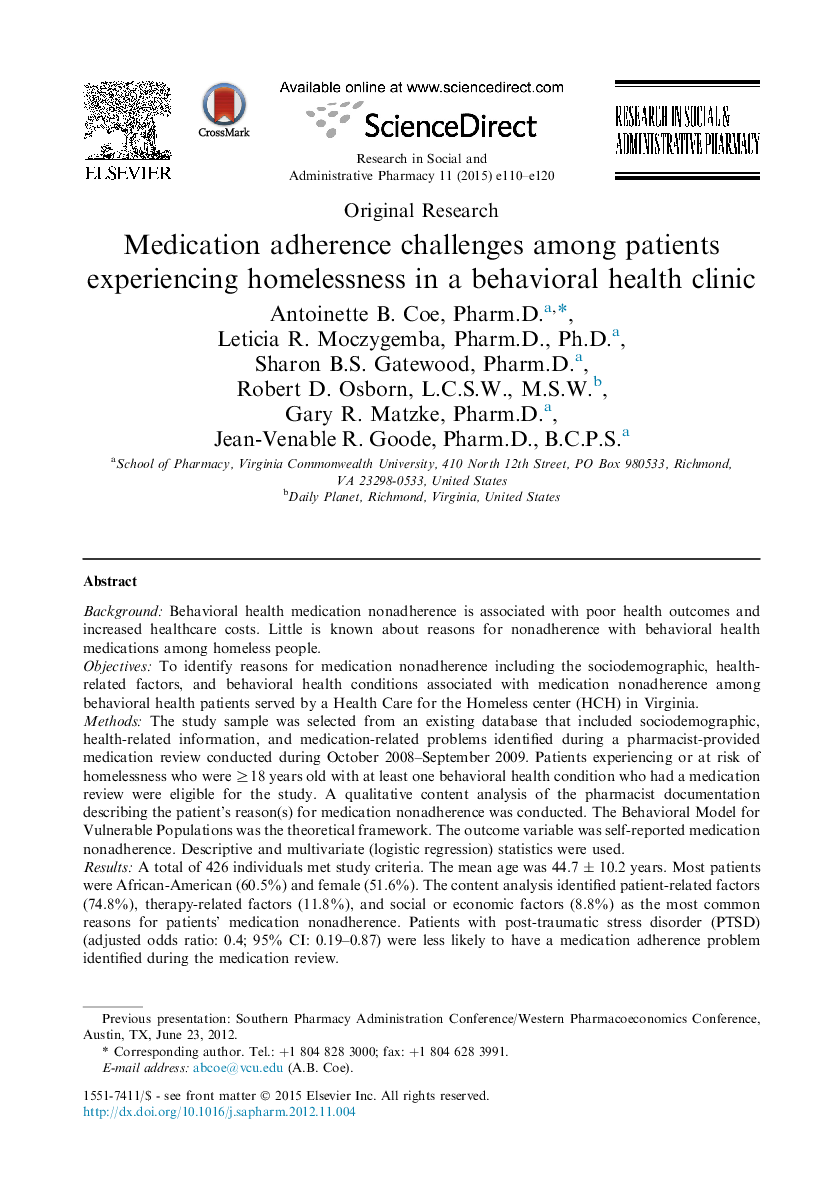| Article ID | Journal | Published Year | Pages | File Type |
|---|---|---|---|---|
| 2508324 | Research in Social and Administrative Pharmacy | 2015 | 11 Pages |
BackgroundBehavioral health medication nonadherence is associated with poor health outcomes and increased healthcare costs. Little is known about reasons for nonadherence with behavioral health medications among homeless people.ObjectivesTo identify reasons for medication nonadherence including the sociodemographic, health-related factors, and behavioral health conditions associated with medication nonadherence among behavioral health patients served by a Health Care for the Homeless center (HCH) in Virginia.MethodsThe study sample was selected from an existing database that included sociodemographic, health-related information, and medication-related problems identified during a pharmacist-provided medication review conducted during October 2008–September 2009. Patients experiencing or at risk of homelessness who were ≥18 years old with at least one behavioral health condition who had a medication review were eligible for the study. A qualitative content analysis of the pharmacist documentation describing the patient's reason(s) for medication nonadherence was conducted. The Behavioral Model for Vulnerable Populations was the theoretical framework. The outcome variable was self-reported medication nonadherence. Descriptive and multivariate (logistic regression) statistics were used.ResultsA total of 426 individuals met study criteria. The mean age was 44.7 ± 10.2 years. Most patients were African-American (60.5%) and female (51.6%). The content analysis identified patient-related factors (74.8%), therapy-related factors (11.8%), and social or economic factors (8.8%) as the most common reasons for patients' medication nonadherence. Patients with post-traumatic stress disorder (PTSD) (adjusted odds ratio: 0.4; 95% CI: 0.19–0.87) were less likely to have a medication adherence problem identified during the medication review.ConclusionsThe content analysis identified patient-related factors as the most common reason for nonadherence with behavioral health medications. In the quantitative analysis, patients with a PTSD diagnosis were less likely to have nonadherence identified which may be related to their reluctance to self-report nonadherence and their diagnosis, which warrants further study.
